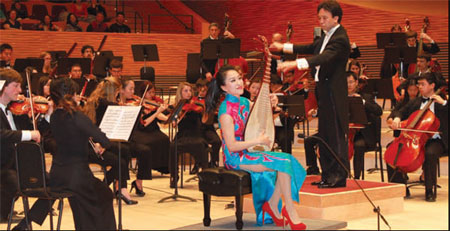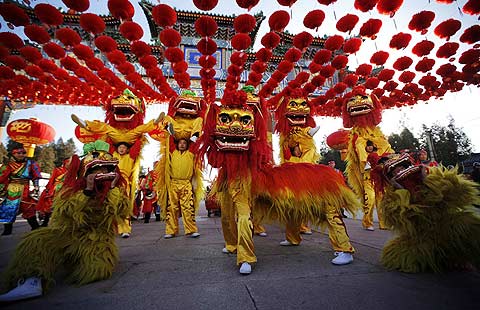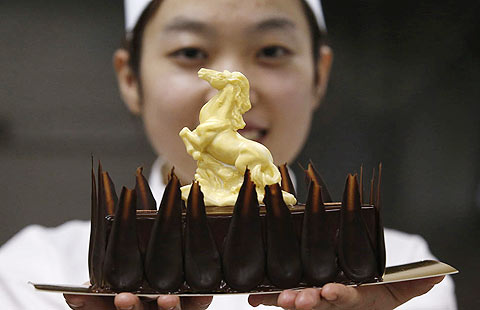Asian music keeps eyes and minds open
Updated: 2014-02-03 11:56
By Qidong Zhang in San Francisco (China Daily USA)
|
|||||||||
The Stanford Pan-Asian Music Festival kicked off its tenth anniversary season at Bing Hall on Saturday with two weeks of concerts and cultural events - featuring traditional Tibetan and Mongolian music and dance by two visiting ensembles, the Tibetan Opera, Dance and Music Troupe of Qinghai and the Mongolian State Academic Theater of Opera and Ballet - to follow.
Conducted by Jindong Cai, founder and artistic director of the festival, the Stanford Symphony Orchestra performed the Yellow River Piano Concerto and traditional Chinese music featuring guest pianist Rueibin Chen, violinist Suli Xue, pipa artist Cong Zhao and Stanford students studying traditional Chinese instruments.
"It has been a remarkable ten years during which we have explored many of the rich and diverse musical cultures of Asia," said Cai. "With the festival as our looking-glass, we hope to continue bringing people and traditions from East and West together through music."
Since its founding in 2005, the festival is dedicated to promoting an understanding and appreciation of music in contemporary Asia.
"I have focused on two projects since I came to teach at Stanford, one is the Stanford Symphony Orchestra, the other is the Pan-Asian Music Festival. I believe we should have a platform to introduce all kinds of Asian contemporary music to the US. As a musician and artist originally from China, it's also my duty to promote such exchange between countries, districts and cultures."
Attributing the 10 years of success of the annual festival to continued support from Stanford, Cai said past programs included the 2008 festival with Chinese traditional music, rock 'n' roll star Cui Jian and near-to-extinct chanting from Chinese monks.
"It takes a whole year effort to put a program together from traveling to the designated country or culture. We have also introduced contemporary Asian music from India, Pakistan, Bangladesh, Japan and Korea. This year we have brought 60 distinguished Tibetan singers and dancers from Qinghai province and Mongolia," said Cai.
Cai believes the introduction of music and art from these regions will help the world understand the people and culture better.
"We can't make progress if we are ego-centric in music," he said. "Music has its culture value when it's passed along for centuries. We need to keep our eyes and minds open to welcome all kinds of music from different cultures. It's also my duty as an educator and musician to present the best platform here in the San Francisco Bay area where all kinds of cultures are nurtured."
Originally from Beijing, Cai joined the New England Conservatory in 1985 and studied with Leonard Bernstein at Tanglewood in 1989. He recalled being reminded constantly by his teachers to never forget the music of his own culture:
Married to Sheila Melvin, an American journalist specializing in Chinese arts and culture who speaks flawless Mandarin, Cai has traveled extensively with his wife in search of music across Asia.
"I have learned a lot in the past 10 years introducing music from all different cultures. The more you touch music from those origins, the more you feel enriched by them," said Cai.
Xiao Xiayong, Culture Consul of China in San Francisco, said it is a wonderful experience to enjoy Chinese and American artists performing on the same stage on opening night.
"Music is an international language and we understand cultures through music. The platform provided by Professor Cai has definitely brought people closer," said Xiao.
kellyzhang@chinadailyusa.com
|
Pipa artist Cong Zhao (center) and conductor Jindong Cai perform at the Stanford Pan-Asian Music Festival last Saturday. Qidong Zhang / China Daily |
(China Daily USA 02/03/2014 page1)

 In teen star transition, Bieber may want to emulate Miley
In teen star transition, Bieber may want to emulate Miley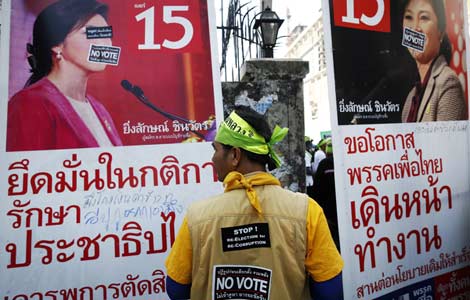
 Thai caretaker PM urges protesters not to block voting
Thai caretaker PM urges protesters not to block voting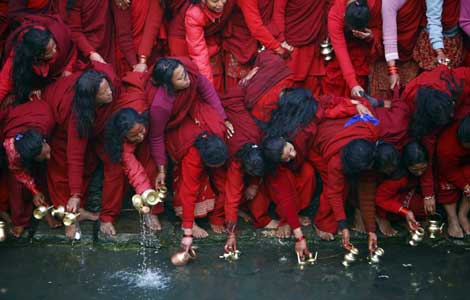
 Holy waters in Nepal
Holy waters in Nepal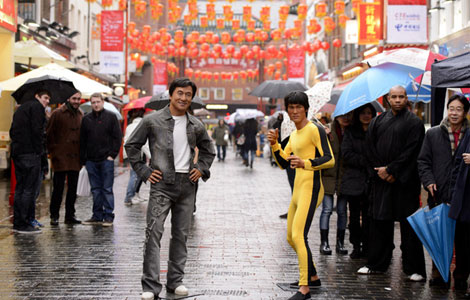
 Kongfu stars wax shine in London ChinaTown
Kongfu stars wax shine in London ChinaTown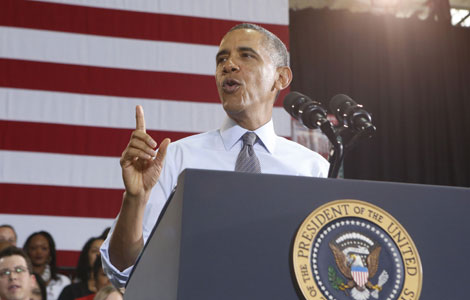
 Obama pushes minimum wage hike
Obama pushes minimum wage hike
 Getting ready for some football
Getting ready for some football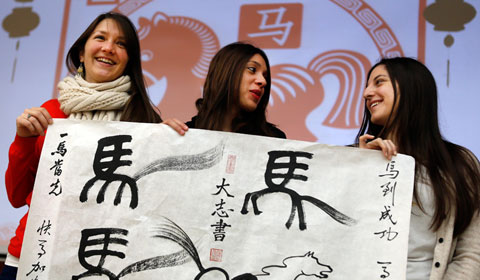
 The Year of Horse gallops in
The Year of Horse gallops in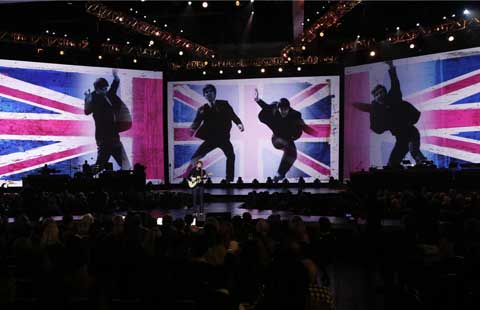
 Musical celebration of Fab Four anniversary
Musical celebration of Fab Four anniversary
Most Viewed
Editor's Picks

|
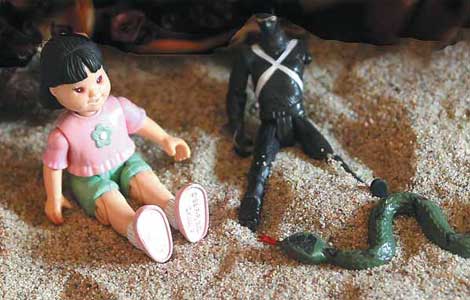
|

|

|

|

|
Today's Top News
Li signs regulation on state secrecy law
Obama speech on NSA welcome
Tape of King speech found
Norovirus blamed for cruise sickness
Largest Chinese Internet IPO yet
US experts divided over China's local debts
Xi extends Lunar New Year greetings
Obama says he believes Sochi is safe
US Weekly

|

|
